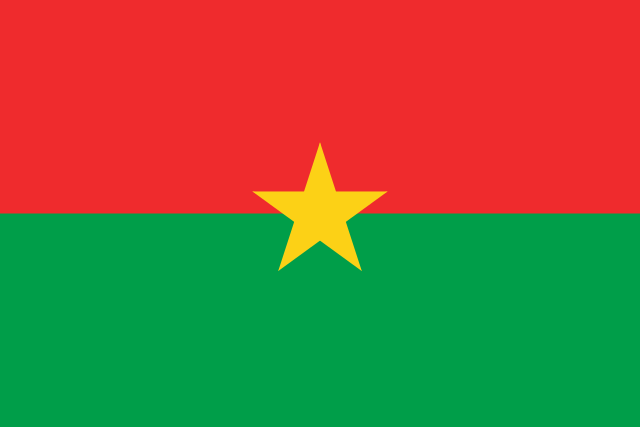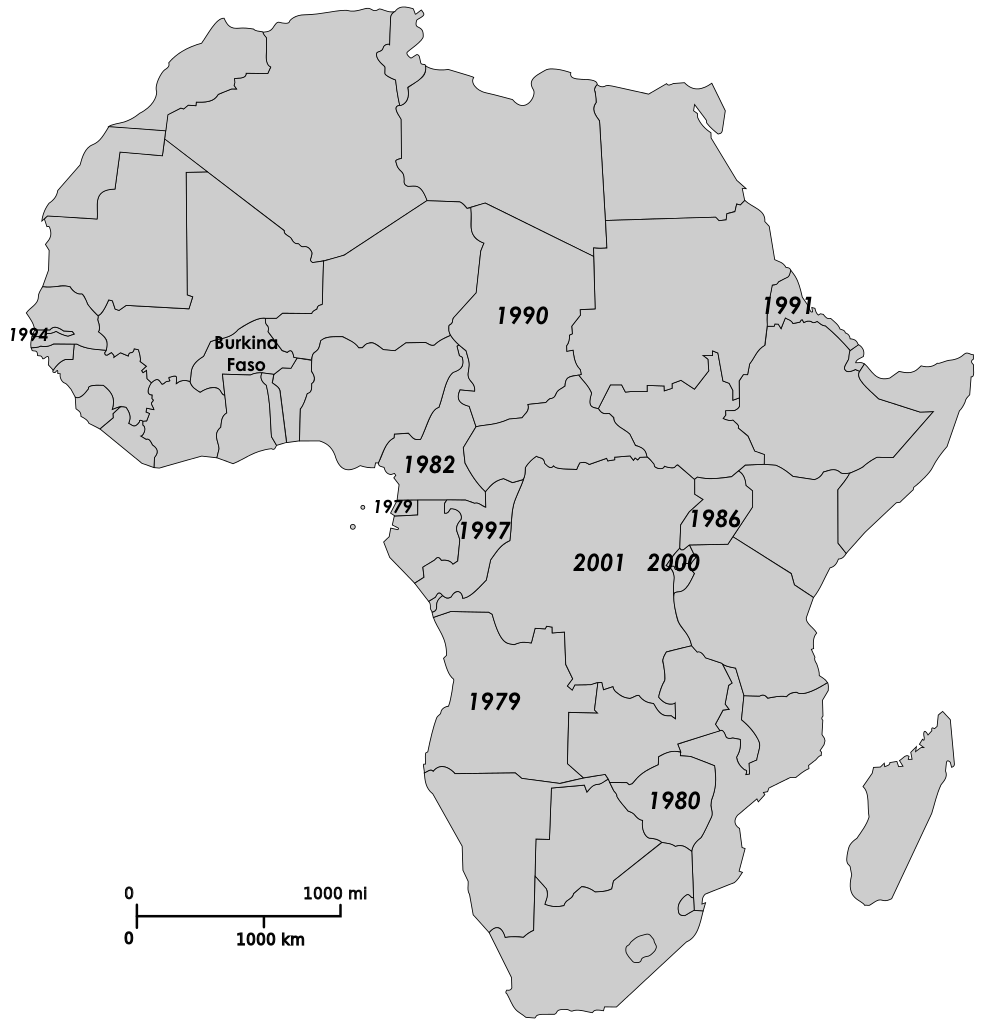Burkina Faso’s post-coup transition to democracy is, theoretically, still on track to be completed by October. However, as the AFP reports, there is nearly constant tension between the hated Presidential Guard and its former number-two, the Military Prime Minister Isaac Zida.
A month ago, Zida claimed to have averted their plot to overthrow him in a coup, but it’s unclear how true that was. They did unsuccessfully publicly try to pressure him to resign earlier in the year. (Either way, the militarists of one stripe or another already have a huge seat at the table in this transition, even without any new coup.)
What little popular support Zida had left, inside or outside of the military, seems to have evaporated when he attempted to promote himself from Lieutenant Colonel to General (after, of course, having “promoted” himself to Acting President by force last year and then getting himself named Interim Prime Minister).
President Michel Kafando, the nominal civilian head of the transition, has been increasingly marginalized (unsurprisingly, given Zida’s presence) and can only issue plaintive appeals for calm and restraint in the coming 3 months.
West Africa’s regional bodies and leaders have continued to play a guiding role in Burkina Faso’s transition process wherever possible, as they did from the start, but this has caused its own bumps. New legislation setting the rules for participating in the country’s planned first democratic elections in October was struck down on July 13 by the ECOWAS Court of Justice because it excluded many people and parties closely affiliated with the Blaise Compaoré regime ousted last fall.
The regional court ruled that the exclusion’s basis — whether or not a politician or party had supported Compaoré’s failed attempt to amend the constitution to remove term limits, i.e. the move which prompted the government’s overthrow — was overly broad and was “a violation of their fundamental human rights.”
The former ruling party enthusiastically announced its nominee for the election upon reinstatement of eligibility. He proceeded to praise the ex-president whose multi-decade tenure in office ended with the national parliament building literally being burned to the ground by protesters.
At this point, it would be a near-miracle if Burkina Faso makes it through the October elections peacefully with a smooth transfer of power and no return to office for Compaoré’s old guard or the militarists. But with the transition roadmap not yet completely dead, despite many opportunities for it to have failed already, I think we can at least expect some positive outcomes, even if it’s unlikely all of those will come to pass.




